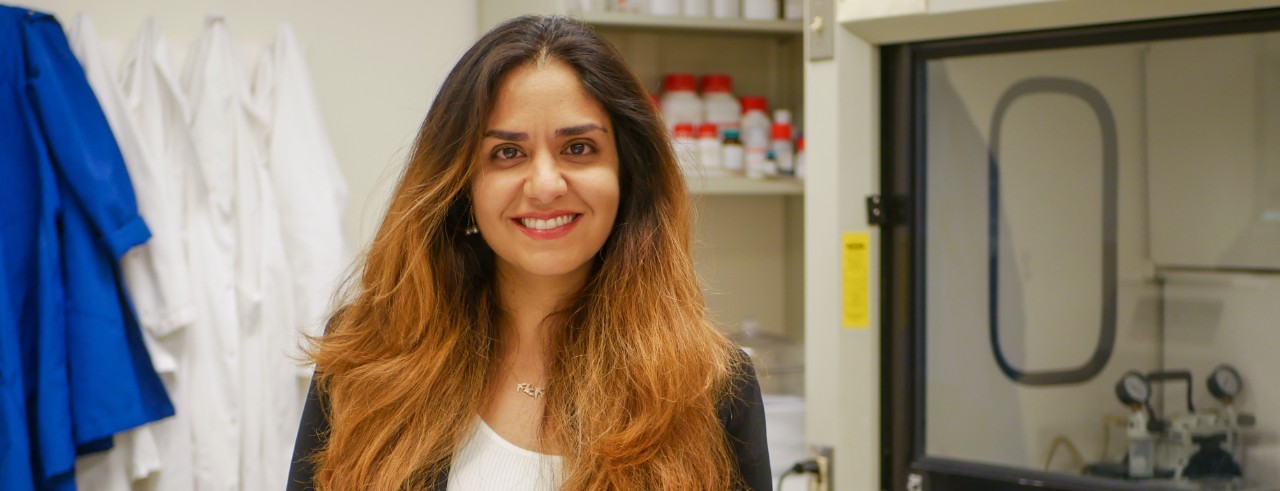
WVXU: UC researchers invents lab-on-a-chip device for cancer
UC College of Engineering and Applied Science professor is improving point of care
WVXU talked to a University of Cincinnati researcher who developed a noninvasive, point-of-care device for early cancer screening using a small amount of a patient’s body fluid such as saliva or blood.
Leyla Esfandiari, an assistant professor of biomedical and electrical engineering in UC's College of Engineering and Applied Science, has a patent pending on a small lab-on-a-chip device that can help doctors get accurate results without invasive biopsies.
"It's going to be faster, cheaper and more reliable," Esfandiari told WVXU. "The most important thing from the patient's point of view is that it's going to be minimally invasive. They are not going to take a tissue biopsy. They are going to get some blood or saliva."
Esfandiari and her research team in her Integrative Biosensing Laboratory at UC discovered a way to make that process faster, easier and more cost effective. Esfandiari frequently collaborates with colleagues from the UC College of Medicine and Cincinnati Children’s Hospital Medical Center. Conversations with those in the medical profession led her to explore a better way to isolate exosomes from the body fluids utilizing a novel label-free electrokinetic device.
Exosomes, or cell-secreted nanoscale extracellular vesicles, contain important gene regulatory contents and are highly abundant in all body fluids. They carry with them RNA and protein markers that indicate cancer and other diseases. While it’s easy to collect the body fluids, it’s challenging to extract exosomes from the fluid to identify the biomarkers.
Featured image at top: UC assistant professor Leyla Esfandiari develops point-of-care devices in her lab in UC's College of Engineering and Applied Science. Photo/Corrie Mayer/CEAS Marketing

UC assistant professor Leyla Esfandiari and her research team created a lab-on-a-chip device for the early testing of cancer. Photos/Corrie Mayer/CEAS Marketing.
Related Stories
A year after Niger's dramatic coup
July 26, 2024
UC School of Public and International Affairs Associate Professor Alexander Thurston tells ABC News that Mali, Niger and Burkina Faso will face difficult times in the wake of armed conflicts.
Advocates working to get ‘PICS’ named a public health crisis
July 26, 2024
Spectrum News and WVXU highlighted the research partnership of the University of Cincinnati's Rachael Nolan and community advocate Chazidy Robinson who are working to raise awareness and recognition of post-incarceration syndrome.
UC’s commercialization navigator pilots tech transfer at 1819...
July 25, 2024
Housed within the University of Cincinnati’s 1819 Innovation Hub, the Technology Transfer team is vital to safeguarding and managing the intellectual property generated by UC’s researchers. Its mission is to translate UC's cutting-edge innovations into viable technologies by evaluating patentability and commercial viability, ensuring compliance and legal protection, recruiting and maintaining external partners, marketing technologies, negotiating license deals and identifying funding opportunities. This multifaceted approach ensures that groundbreaking discoveries from UC are positioned to reach the market, delivering substantial benefits that impact society.
